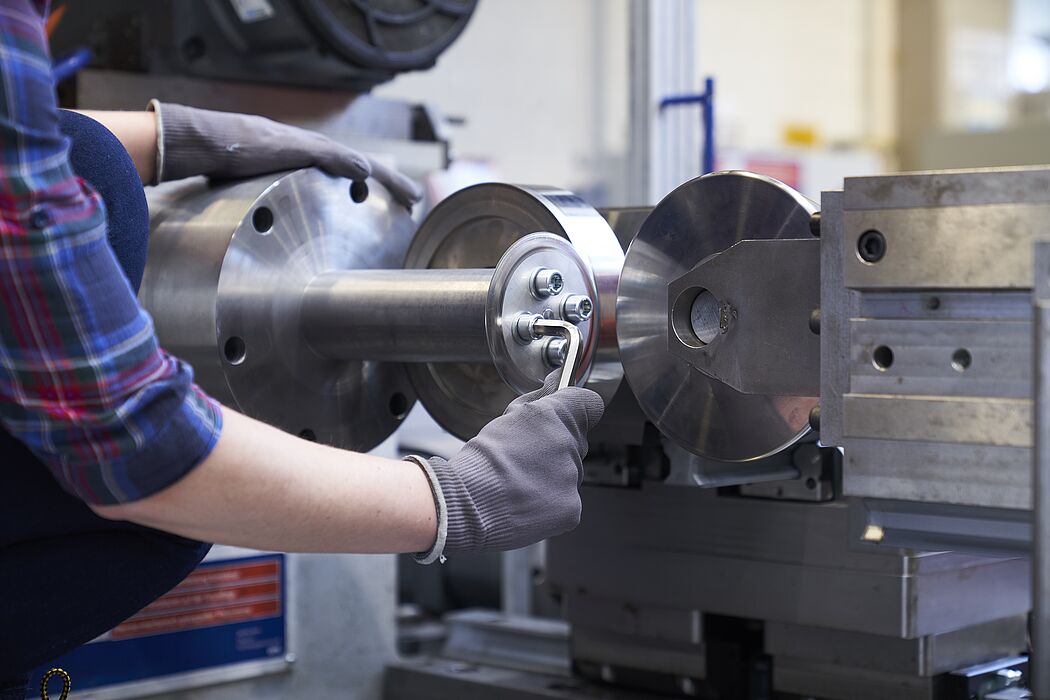The most important funding institution and central self-governing organisation for science in Germany, the DFG, has published the Funding Atlas 2021 this week. The data from 2017 to 2019 show how higher education establishments and research facilities perform in various research fields and how things are going with the overall financing of the German higher education and scientific research system. Paderborn University repeatedly figures in the rankings with some excellent results.
With around 26 million euros, Paderborn University ranks at number 20 among the higher education establishments with the most DFG approvals from 2017 to 2019. Were these 26 million euros to be assessed in the light of personnel strength, the university would climb to number 15 in the ranking list for the professoriate. Expressed in figures: 53 chairs and specialist fields raised an average of around EUR 490,000 euros each in the cited period of time.
The breakdown according to specialist subjects in the engineering science field shows that Paderborn is doing particularly well in the disciplines of “information technology, system and electrical engineering” as well as “mechanical engineering and production technology”, with 16.2 million euros in DFG approvals in the former and 5.8 million euros in DFG approvals in the latter. Professor Mirko Schaper, Dean of the Faculty of Mechanical Engineering on the subject: “In addition to the very good ranking position, I’m particularly happy about the positive trend, as we’ve been seeing continuously climbing figures in third-party fundraising for years now.”
Professor Peter Schreier, Dean of the Faculty for Electrical Engineering, Computer Science and Mathematics also praises the performances of the scientists: “DFG third-party funding applications are subjected to a particularly rigorous evaluation process. In as much, we’re naturally extremely pleased that we’ve done so well in this field. It’s a wonderful result that confirms the quality of our research”.
Several special research fields, e.g. transregios, funded by the DGF, are ensconced in both faculties. Profile sectors in which the relevant disciplines are significantly involved include, inter alia, intelligent technical systems, sustainable materials, processes and products as well as optoelectronics and photonics. The faculty-spanning discourse – frequently in close collaboration with industry – leads to future-oriented projects, which are dedicated towards meeting urgent social challenges. These include, for example, security solutions for IT systems or key technologies, such as lightweight construction, 3D printing or quantum communication.
The university also achieves especially good results by the funding of the “German Federation of Industrial Research Associations” (AiF) within the scope of the “cooperative industrial research” (IGF) programme: It occupies 8th place here and is thus in the top ten as a national comparison. The AiF is an organisation promoting applied research and development benefiting Germany’s small and medium-sized businesses.
Professor Johannes Blömer, Vice President for Research and Junior Academics at Paderborn University, is proud of the rankings: “The good results confirm our research strategy and attest to the excellent work of our scientists, whilst at the same time providing an incentive for us to keep improving.”
The Funding Atlas 2021 is now the ninth report in which the DFG has been presenting key data on publicly financed research every three years since 1997. Relevant data are collected by the funding institutions and not by the funded establishments.
Nina Reckendorf, Stabsstelle Presse, Kommunikation und Marketing


